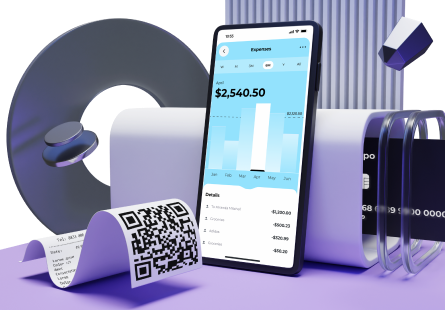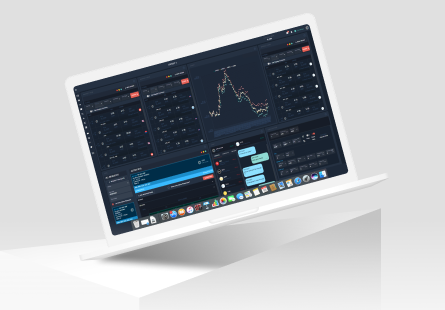Did you hear that National Australia Bank (NAB) recently used Ethereum-based smart contracts to carry out the first-ever cross-border stablecoin transaction involving a major bank? The move was part of NAB’s ongoing efforts to simplify international transaction protocols. And has demonstrated the potential of smart contracts to cut transaction times from days to minutes.
Alongside other forays by traditional financial institutions and fintech startups into decentralized finance (DeFi), NAB’s pilot shows that smart contracts are gradually becoming the new normal for the entire financial sector.
So, what is a smart contract, and why do they have the potential to disrupt the entire industry? Let’s take a closer look.
What are smart contracts?
As the central element of DeFi, a smart contract is a self-executable digital contract and, in essence, a computer program with the if-then logic deployed on a blockchain network. Similar to its traditional counterparts, a smart contract ensures the transfer of value between parties once certain conditions are met. Here’s how it works.
Say, a supplier and a manufacturer enter into a blockchain-based contract. If the manufacturer needs to replenish their inventory, the smart contract automatically triggers a purchase order for the required amount of raw materials from the supplier. Once the raw materials are delivered, the smart contract automatically initiates payment to the supplier, based on the agreed-upon price and payment terms.
Aside from being self-executing substitutes for traditional agreements, smart contracts can also act as a backend element and an API of a decentralized app (or dApp) — a software solution running on a blockchain. Smart contracts represent the business logic of dApps while connecting them with the underlying blockchain technology.
Now that we have a basic grasp of smart contracts, let’s see what makes them stand out.
What are the main benefits of smart contracts?
You might say, “Well. We have computer programs to automate processes, including transactions. We have APIs. And we already have tools to build business logic. Is leaping into the unknown really worth the effort?”
Yes, it is. The key advantage of smart contracts is that they don’t need a third party to validate the transaction — essentially, it’s validated by all users of the blockchain network. As a result, even parties that don’t know each other can securely do business together.
Other benefits of smart contracts include:
- Immutability and traceability. A distributed ledger is designed to be tamper-proof. Once a transaction is executed, it’s recorded in the ledger and, in most cases, can’t be erased or modified. Besides, blockchains prioritize data security and are extremely resistant to hacks.
- Speed. With blockchain-based contracts, you can forget about waiting for a certain number of business days for a payment to be cleared and settled. The consensus between users is reached near-to-instantaneously, and so is the transaction executed.
- Cost reduction. Speed and the absence of third-party intermediaries in financial transactions reduce the cost to a minimum — many dApps execute payments with no fees at all.
- Precision. While mistakes in payment data can be a reason for a dispute, the traditional transaction process is extremely error-prone. Smart contracts execute automatically while avoiding errors.
These are just a few top picks, from the list of the merits of smart contracts. However, note that you can only fully capitalize on this technology if it meets your needs and suits your use case. Let’s consider the main smart contract applications in the financial sector.
Smart contracts: Their use cases in financial services
Peer-to-peer (P2P) transactions are probably the first known application of smart contracts. The first smart contract in the world laid the foundation for the Bitcoin blockchain and was (and is still) used to enforce the rules for the transfer of its eponymous cryptocurrency.
Today’s distributed ledger technology market is brimming with P2P payment solutions, such as Circle, offering secure transactions based on this cutting-edge technology. Zenland went even further and created the first P2P marketplace. It utilizes automated escrow smart contracts, enabling users to buy and sell products and services with minimum risk and zero fees.
And of course, P2P transactions aren’t the only use case of smart contracts, so let’s consider some others.
P2P borrowing and lending
Though peer-to-peer (P2P) lending empowers low credit score holders to attract investments, it poses significant credit risks to lenders: the latter isn’t in any way protected from the borrower’s default. And smart contracts can fix that.
Aside from automating the process of loan issuance and repayment, smart contracts can verify the creditworthiness of borrowers and enforce penalties for late payments or defaults. The smart contracts on Lendoit, ETHLend, Colendi, and other P2P lending marketplaces, for instance, require borrowers to put up a collateral that is liquidated if a borrower fails to fulfill their commitments.
B2B transactions
B2B payments are known for still being littered with pain points resulting from the reliance on legacy systems and processes.
The extensive number of intermediaries involved, high transaction fees, delayed payments, and poor data management make disputes an integral part of these business relationships. Luckily, with their ability to automatically release funds only once all conditions are met, smart contracts are set to reduce the number of B2B disputes to a minimum.
For example, after Walmart Canada introduced blockchain and smart contracts to automate the payment process for its suppliers, they managed to minimize the number of freight invoice disputes from 70% to below 2%.
Insurance
Similar to how smart contracts minimize risks associated with peer-to-peer loans, they can do the same with insurance claims.
When a customer applies for insurance, a smart contract can verify their information, check their eligibility, and if all the necessary criteria are met, issue the policy. Besides this, it can also assist with the claims settlement process: it can automatically verify each claim, check for coverage, and — if the customer is eligible for the repayment — transfer the funds.
Case in point, Fizzy — the now discontinued blockchain-based software product focused on flight delay insurance. It used smart contracts to trigger an automatic payment once a delay exceeded two hours. Another solution is Arbol, a parametric insurance platform for farmers, resorts, and other businesses that heavily rely on weather conditions. Its smart contracts use climate and weather data to pay out on insurance as appropriate.
Payroll management
Smart contracts can also facilitate the process of meeting payrolls in a fast and secure manner.
A smart contract listing the necessary conditions for salary payment can be programmed to automatically transfer pay to employees’ accounts on a specified date. An added identity verification mechanism can also ensure that the correct amount is delivered to the right employee precisely on schedule.
And these capabilities have already been implemented on the market. For example, Bitwage with its cross-border salary payments, and Chrono.tech with its real-time payments to freelancers once they complete a task or submit a timesheet.
As you can see, smart contracts can be applied in many aspects of finance. And we’re just scratching the surface: the technology is also actively utilized in KYC (Know Your Customer), trading of both traditional and digital assets (like NFTs and cryptocurrencies), online donations, and beyond. The potential of smart contracts for this industry is immense, and if this is your ballpark, the chances are they will be useful for you, too.
Conclusion
Trustworthy, immutable, fast, and cheap, smart contract-based transactions have the potential to disrupt the entire financial industry, affecting both fintech startups and traditional financial institutions, like NAB. Smart contract adoption is growing, and the technology has already found use in P2P and B2B banking, insurance, payroll management, and beyond.
Although this may sound inspiring, you won’t be able to fully capitalize on the technology if you fail to implement it correctly. And that’s where DeepInspire’s expertise comes into play. Reach out to us at [email protected], and let’s talk!







